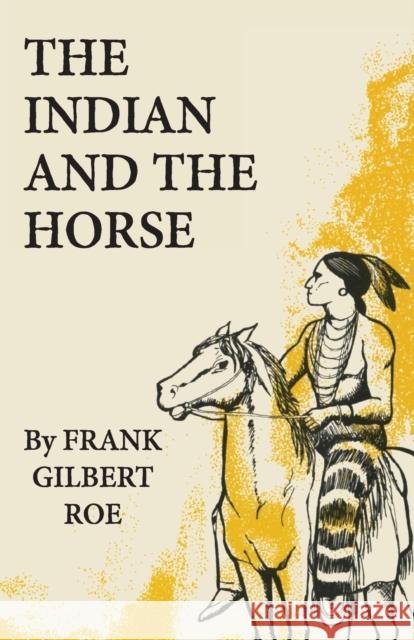The Indian and the Horse » książka
The Indian and the Horse
ISBN-13: 9780806113838 / Miękka / 1976 / 486 str.
One truly remarkable phenomena of history is the acquisition of the horse by American Indian tribes of North America. With horses stolen from the Spanish frontier settlements (not "strays" found on the prairies), the Indian tribes were transformed and revitalized. Horses made Indians more mobile, enlarged their capacity as hunters, and made them awesome foes in warfare. Northward from Mexico, the horse spread through the plains and mountains, reaching central Saskatchewan 150 years later. The Cheyennes, Comanches, and Blackfeet became some of the most splendid horsemen the world has ever known. The Crows were the "horse traders" of the Plains.
This carefully documented account brings to life the hardy Indian pony--possessing almost unbelievable speed and endurance that allowed its rider to run down the fastest buffalo or leave his cavalry pursuers far behind. Here is the story of American Indians and their relationship to the animals that broadened their horizons, and a historical record of one of the most turbulent and fascinating eras of American frontier history.
A classic chronicle, The Indian and the Horse contains many superb illustrations from rare photographs and from paintings and drawings by George Catlin, Alfred Jacob Miller, Charles Wimar, Rudolph Friederich Kurz, Frederic Remington, Charles M. Russell, and others, along with a map of the dispersion routes of the horse in North America.
One truly remarkable phenomena of history is the acquisition of the horse by American Indian tribes of North America. With horses stolen from the Spanish frontier settlements (not "strays" found on the prairies), the Indian tribes were transformed and revitalized. Horses made them more mobile, enlarged their capacity as hunters, and made them awesome foes in warfare. Northward from Mexico, the horse spread through the Plains and mountains, reaching central Saskatchewan 150 years later. The Cheyennes gloried in war, and the Comanches and Blackfeet became some of the most splendid horsemen the world has ever known. The Crows were the "horse traders" of the Plains. This carefully documented account brings to life the hardy Indian pony-possessing almost unbelievable speed and endurance that allowed its rider to run down the fastest buffalo or leave his cavalrymen pursuers far behind. It is the story of American Indians and their relationship to the animals that broadened their horizons, and a historical record of one of the most turbulent and fascinating eras of American frontier history. A classic chronicle, The Indian and the Horse contains many superb illustrations from rare photographs and from paintings and drawings by George Catlin, Alfred Jacob Miller, Charles Wimar, Rudolph Friederich Kurz, Frederic Remington, Charles M. Russell, and others, along with a map of the dispersion routes of the horse in North America.Volume 41 in The Civilization of the American Indian seriesFrank Gilbert Roe (1859-1970), a native of Sheffield, England, went to Canada in 1894. He held an honorary LL.D. degree from Alberta University, and his articles for scholarly publications and notable book, The North American Buffalo, established him as a gifted scholar.











